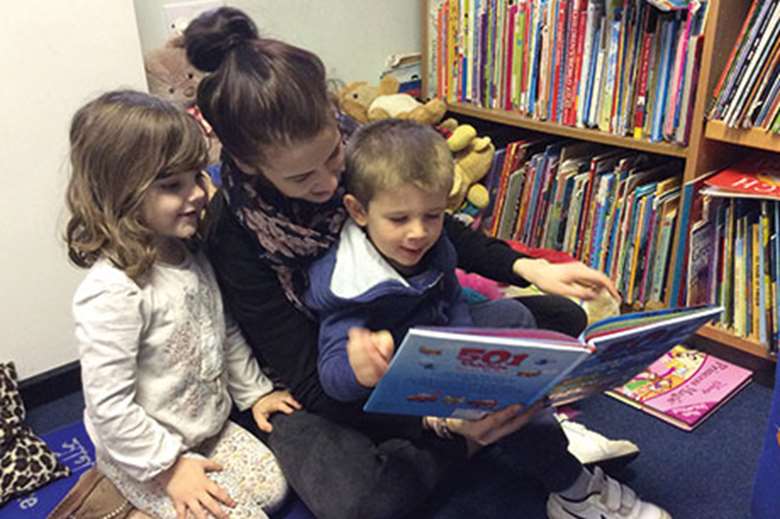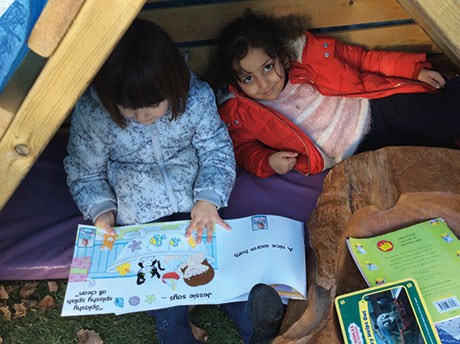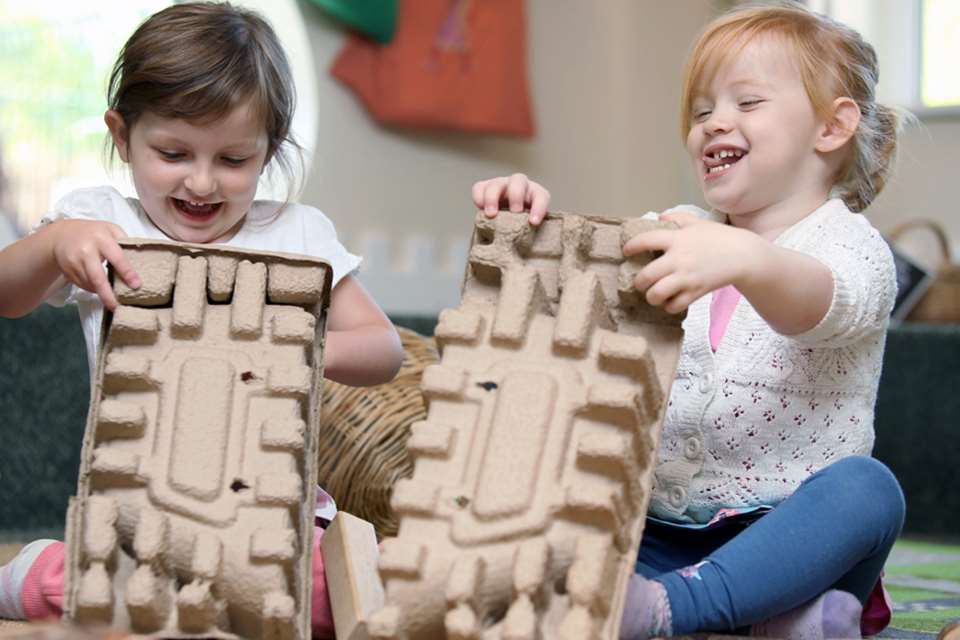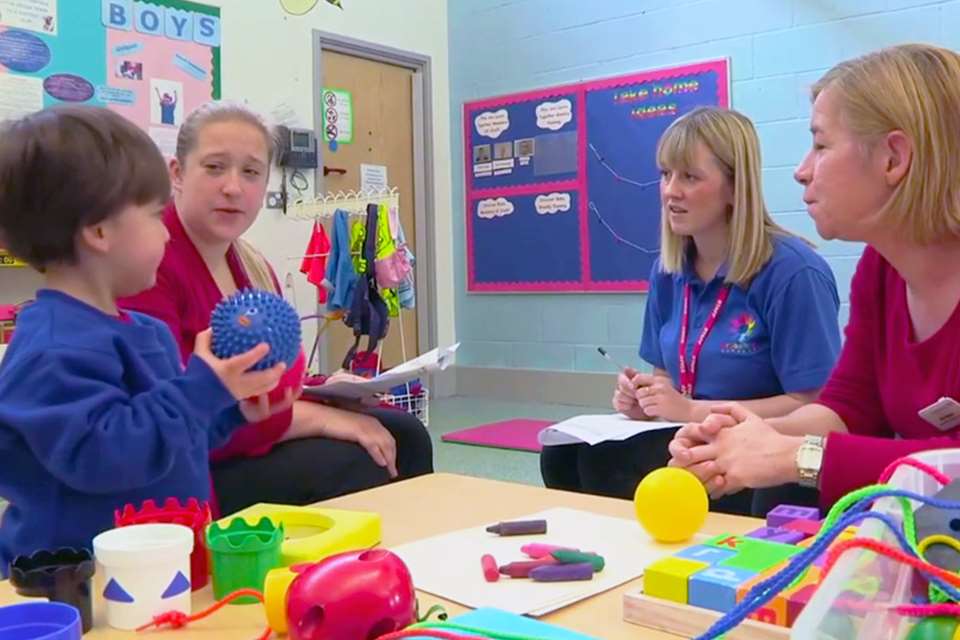Nursery Management: Integrated review - Reality check
Charlotte Goddard
Monday, March 19, 2018
The Integrated Review has received a mixed response from settings in terms of the effectiveness of its impact on identifying developmental problems early. Charlotte Goddard reports

Download the PDF of this article
It has been two and a half years since the launch of the Integrated Review, but while successful in some areas, there is no evidence to show that it is having an impact on a national level.
The Integrated Review brings together the Early Years Foundation Stage (EYFS) progress check, usually carried out by a child’s key person, and the health and development review, at age two- to two-and-a-half, which is part of the Healthy Child Programme. The aim is to improve communication between health and early years professionals, simplify things for parents, and ultimately pick up potential issues with a child’s development earlier.
Local authorities are not obligated to deliver the Integrated Review, and there is no template for how it should be delivered. The Government is not collecting information on which local authorities are delivering it or how they are doing so, so it is impossible to get a true picture of how widely adopted it is. There are also no official figures showing whether there has been any improvement in early identification since the introduction of the Integrated Review, making its impact hard to evaluate.
In some areas, such as Hackney, health visitors and early years practitioners are coming together with parents and children in one place to carry out a unified review. In others, such as Herefordshire, the reviews are carried out separately, but communication between health visitors and early years settings is strong (see case study, overleaf).
However, in many areas of the country, little seems to have changed, says Sue Robb, head of early years at Action for Children.
‘From a practice point of view there are very few people doing truly integrated reviews,’ she says. ‘I went into a school with a nursery class recently where the head teacher said they had never seen a health visitor – and that is not so unusual.’
Health visitor numbers are falling: figures published at the beginning of the year showed that 392 health visitors joined the profession between September 2016 and September 2017, while 1,586 left. This lack of resources inevitably leads to delays and gaps: according to Public Health England, only 61 per cent of children in London are accessing the two-and-a-half-year health check.
‘As a concept it was a laudable idea,’ says Dr Lala Manners, director of Active Matters. ‘But while there are pockets of good practice, in many places it is just being fudged.’ Dr Manners feels that a lack of follow-up is an issue. ‘If the check resulted in one document that covered both the health and education aspects, and that fed into a second check at Reception or Year 1, that could work, but as it stands the Integrated Review doesn’t feed into anything,’ she says.
MAKING AN IMPACT
Early years practitioner Kelly Littlewood researched the Integrated Review process in three local authorities as part of her MA study at the University of Nottingham. She found that even where early identification had increased, local authorities felt this could be attributed to factors other than the review, such as the national entitlement to funded hours. One nursery manager told Ms Littlewood the review was ‘just another piece of paperwork which we just have to absorb into our workload’, while another commented on ‘lengthy referral waiting times’ when issues were identified.
In some areas, however, practitioners say the Integrated Review has had a positive impact on early identification. Jacky Syme is service development manager, children’s services at Essex Partnership University NHS Trust (EPUT) – Bedfordshire, where around a quarter of reviews take place in early years settings.
‘Nurseries are saying the review has led to them referring a lot more,’ she says. ‘We have seen a lot of children with fine motor skills deficiencies which we did not expect. Nurseries are able to work on activities to support children, and we go back three months later to do another cohort check. By then the issues might be resolved, and if not we will refer out for additional support.’
The EPUT team makes regular visits to early years settings, including childminder groups, to review several children at once. ‘We thought parents would like the review to take place at nursery because it is a trusted setting, but they are at work when the children are at nursery,’ says Ms Syme. ‘So we try to do the review at the beginning or end of the day to make it easier for the parents.’
Ms Littlewood’s research found variation in how and when the review was delivered. Of a small sample of parents, one said the health and education reviews were carried out on the same day, one had them a week apart, two in the same month and one within six weeks. Two other parents were unsure whether the review had been carried out at all. ‘There are numerous inter-relatable terms for the integrated review, such as “review at two”, “integrated review” and “check at two”, which act as the umbrella term for the health review and the progress check at two,’ she says. ‘Assessment jargon causes confusion among parents.’
PARENTAL CONFUSION
Helen Horner, manager of Polly Anna’s Nursery in York, says parents at her setting find the letter they are sent about the health element of the Integrated Review confusing. ‘According to our parents, the letter they receive plays the check down, requesting that the parents call to make an appointment,’ she says. ‘Many parents and carers don’t pay much thought to it, and don’t book an appointment.’
Parents’ lack of engagement with the health side of the check impacts the education side, says Ms Horner. ‘My team consult with parents/carers prior to the education check, sending out a parent contributions form. As part of this form we ask to see a copy of the two-year health check. Sadly, many families don’t provide this, either because they didn’t attend, or they can no longer find it. Ideally it should be in their red book.’
While the Government has taken a hands-off approach to the Integrated Review, leaving it to be run – or not – by local authorities as they see fit, it is still trying to promote joint working between health and education to facilitate early intervention. The Social Mobility Plan, published in December 2017, includes a focus on closing the ‘word gap’ between disadvantaged children and their peers. As part of this focus on early speech and language, the Government says it will form a partnership with Public Health England to enable health visitors and early years practitioners to identify and support children’s early speech, language and communication needs.
This partnership will develop training, guidance and an early language assessment tool for health visitors and early years practitioners to help check children’s early language development, including as part of the two-year-old check. ‘If they can get speech and language sorted, it would be brilliant for our children,’ concludes Ms Robb.
CASE STUDY: BUSY BEES, LEDBURY

Emma Davis, manager at Busy Bees nursery in Ledbury, says children in her setting benefit from the Integrated Review. ‘The reviews – ours and the health visitor’s – tend to take place separately,’ she says. ‘Children have usually already had their health review by the time they begin sessions with us.’
Children are given time to settle in and build an attachment with their key person before the nursery carries out its own progress check. Parents bring in the child’s ‘red book’, which includes details of the health check, allowing practitioners to pick up on any issues that were identified.
The review itself usually takes place when the parent is dropping off or collecting their child, and is led by the key person, although a senior member of staff sits in for support and to take notes. ‘This takes the pressure off the key person as they can then have a natural conversation without having to take notes,’ explains Ms Davis.
During the review, parents sign a form which consents to the sharing of information with the health visitor or other professionals, and indicates if ‘no action’ or ‘further action’ is required. The report is typed onto a learning journal for the parents to read and add their comments.
A health visitor visits the setting once a term, and the practitioners are able to discuss all of the reviews that have taken place. ‘Should we have concerns before the date of the Integrated Review, we discuss with the health visitor immediately to avoid any delays to a child getting the support they may need,’ says Ms Davis.
If the education review finds issues that require support, a plan of action is developed with the health visitor. ‘This might be for the health visitor to come in and observe a child, a home visit to be arranged, a further review to take place in three months, or a referral to another agency such as audiology, speech and language or the paediatrician,’ says Ms Davis.








